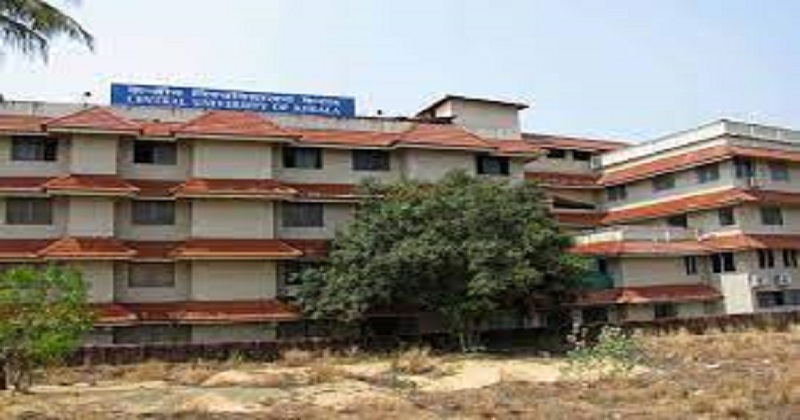
A circular issued by the Kasargod-based Central University of Kerala on 30 August advised faculty members to refrain from provoking lectures that will be used against the national interest. According to the circular, disciplinary action will be taken against those who continue to engage in such activities. The circular follows the temporary suspension of assistant professor Gilbert Sebastian on 17 May, for allegedly raising questions about whether the RSS-BJP is a fascist organization.
On 10 June, Vice-Chancellor H. Venkateshwarlu retracted the suspension order against Sebastian, after the professor submitted a letter expressing regret that his remarks had been misconstrued by others and created unwarranted attention for the university. Upon contacting the VC over the phone, he told the Print to speak to Dr. R. Pilankatta, registrar-in-charge at the Central University of Kerala, and member secretary of the university’s executive council, about the circular. Dr. Pilankatta told ThePrint that since all classes are online now, teachers must be aware and cautious while making statements. Classroom examples should not damage students’ feelings or undermine national security. In order to make classrooms more comfortable for all students and professors, we issued this notice.
Are the RSS-BJP pro-fascists?’
During a class of first-semester MA students on 19 April, Sebastian had allegedly asked a question about the current Narendra Modi government as well as whether the RSS-BJP was a fascist organization. ThePrint accessed a slide that stated, ‘India under Narendra Modi (2014-19)’. As stated in the next slide, ‘The RSS and its affiliated organizations are collectively known as Sangh Parivar, meaning the Sangh family (BJP) in India can also be considered proto-fascist’.
In the same class, Sebastian allegedly criticized the Union government for exporting Covid-19 vaccines without first addressing the country’s needs. India started exporting Covid shots abroad on 20 January, both as grants and commercial shipments, under a program dubbed Vaccine Maitri. As a result of a vaccine shortage in India, Vaccine Maitri was put on hold in April. A student attending the class complained about the content of Sebastian’s lecture to an administrative official in the university’s Department of International Relations.
The committee’s report concluded that Sebastian had ‘exceeded his brief in the class and violated the service rule that prohibits criticizing the government,’ and Sebastian was suspended. According to sources ThePrint spoke to, the enquiry committee’s report on the assistant professor’s lecture did not find it anti-national nor did it use the term in its report. ‘Regret’ letters were submitted by Sebastian, and he was reinstated.
According to the assistant professor’s form, he regrets not being admitted, because his views were misconstrued by others and caused a negative spotlight on the university. In his letter dated 5 August, a copy of which ThePrint has, the professor also asked the vice-chancellor to correct incorrect statements and the unfounded allegations made about him in minutes of the 51st Executive Committee meeting.

On 24 June, the executive council of the university issued an order to its faculty asking them to avoid making any provocative statements while lecturing. ‘Each member agreed and authorized the Honorable VC to issue a circular in the University reminding faculty and employees to refrain from giving provocative and anti-national statements in the future’. The circular was issued on 30 August, more than two months after the EC meeting on the subject.
Students, professors unhappy with the order
ThePrint reached out to several professors of the university, but most of them declined to comment about the circular, citing a university regulation that prohibits them from speaking to the media about it. Nevertheless, a professor who spoke on condition of anonymity told ThePrint, ‘The ambiguity of the term ‘anti-national’ makes teaching in a classroom much more difficult under this new order. It may seem as if a normal statement or example to me is offensive or anti-national to others. Teachers face this challenge. Every word we say will be second-guessed’.
Furthermore, he stated, ‘Most theories are best taught by providing examples from real-life situations. Is it accurate to say that a professor cannot state the facts in the classroom if the GDP in India has dropped? Science courses are also affected by this. In the case of a professor who stated scientific facts that did not agree with the government’s ‘propaganda’, the university may take action against them’.
Read more: ‘There was no America’: The Afghans remember how 9/11 changed their lives
Professor Titus’ concerns were shared by Davis Titus, president of the Kerala chapter of the National Students’ Union of India (the student wing of the Indian National Congress), who feared this would negatively affect teaching. In essence, this order is authoritarian and imparts the party’s propaganda. ‘What the university is trying to convey here is that if you speak against the government, you speak against the nation,’ said Titus.
According to him, universities provide us with the opportunity to view theories from multiple perspectives. In any healthy classroom discussion, the students will draw parallels to the country they live in. Is it even possible to learn if we can’t discuss current events during lectures? While playing down such concerns, Dr. Pilankatta told ThePrint, ‘Everyone has the right to express their opinions freely on public platforms. However, this is a classroom where only curriculum-related topics need to be discussed’.

Post Your Comments